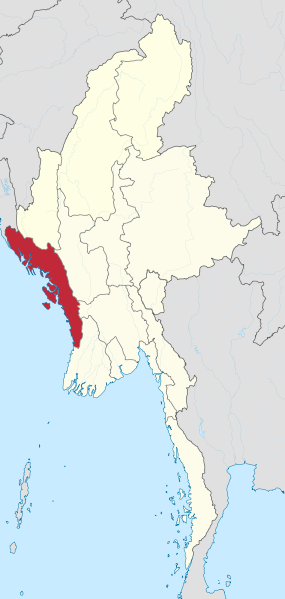The Rakhine Buddhists are demonstrating against the Myanmar’s Muslim Rohingya but it needs to be noted that these local minority group Muslims have been living without especial difficulties around Rakhine region for centuries. They are part of general society. They enjoy all rights including that of religious freedom. However, along with the other citizens of Myanmar, the Muslim Rohingya have been suffering because of the sanctions imposed by the UN and the ‘West’ and under local generalised conflicts.
The Rohingya that fled to Myanmar during the upheavals in Bangladesh during the 1940s have partially been integrated into the Myanmar society, the majority though is living in refugee camps and as largely homeless people in Rakhine State.
Like other official minorities in the ethnically diverse country, the Muslim Rakhines suffered under the yoke of the junta for nearly half a century until a nominally civilian, reformist government replaced it in March last year.
But, there are external-to-the-country efforts aimed at controlling Myanmar´s oil and gas resources that makes the eventual status of the Rohingya refugee population in Myanmar complex and difficult to resolve! In fact, those efforts are using their predicament for ends far from their benefit!
Myanmar is currently involved in two international pipeline projects which compete:
the Myanmar-Bangladesh-India pipeline project which is transporting gas from Myanmar to Bangladesh and India, and the dual Oil&Gas China-Myanmar pipelines.
There is a suspicion that outside imposed – by overt influence if not by direct subvert ones – activities will bring to the fore all the seemingly pro-democracy forces but primarily those which sideline attempts to find a Myanmar-and-Asian solution for Myanmar´s problems – example the Rohingya – within a regional framework of ASEAN.
That’s where Aung comes in, saddled between two horses, one pulling towards China and the other in the opposite direction.
China is in the strongest position given its closer regional status and given a safe and stable region that is host to those comprehensive energy resources, that are sought after by the West via Bangladesh, then the West and Bangladesh-India could lose that opportunity and will have to stand in line.
The Rohingya refugees plight in Myanmar and elsewhere will not be served by the imposing of additional hardships on them by the government of Myanmar in implementing tougher controls over the refugee population. But care must be taken by the media, human rights organisations, UN-agencies and NGOs generally, to justify sanctions and interventions that do not solve the problems of the Rohingya and beyond that, making them further victims of circumstance.
Failing that, such hardships would delay all that the people of Myanmar want for the normalisation of their country by destabilizing Myanmar national reconciliation projects, producing a further fracturing of society.
There are forces at work worldwide that always see gain from a country’s internal disunity because united a people have strength and can democratise a country within its system of laws and thus gain and keep control over its resources. That’s not what outsiders want. In conditions of instability the most powerful sway events their way.
Sadly, in any country there are local power groups that will do anything, even sell their country short, to keep their grip on power and the wealth. Thus it is with the military linked cartels and their ilk that run all kinds of enterprises.
Who will bell the cat, the tiger’s tail? Only the people can do that and for that they need to be united. The root cause of division lies in the country’s colonialised past with its divide and rule, violent methodology of imperialism. The counterpoint is a non-violent methodology of process and inclusion, thereby regaining the casual solidarity of previous ages.










